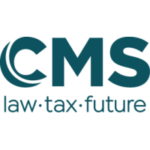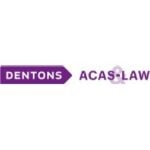-
Does your jurisdiction have a class action or collective redress mechanism? If so, please describe the mechanism and outline the principal sources of law and regulation and its overarching impact on the conduct of class actions in your jurisdiction.
Yes, the Canadian judicial system includes class actions (also referred to as “class proceedings”) that allow a representative plaintiff to commence a lawsuit or legal proceeding on behalf of a class of persons or entities.
The principal source of law and regulation for class actions in Canada are provincial-level legislative enactments that allow for the provincial superior courts to “certify” (or, in Quebec, “authorize”) legal proceedings to be conducted as class actions. For example, the province of British Columbia enacted the Class Proceedings Act, R.S.B.C. 1996, c. 50, to govern the conduct of class proceedings in the province and define the statutory criteria for a law-suit to be pursued as a class proceeding.
In general, Canadian class actions legislation allows a representative plaintiff to file a legal proceeding on behalf of a defined class of persons; however, the representative plaintiff is required to apply to the provincial superior court having jurisdiction over the substantive claim for an order certifying that the proceeding meets the statutory requirements to move forward and be prosecuted as a class action. If the court does not grant the class certification application, then the proceeding can only be pursued as an individual action by the named plaintiff(s).
While there are some minor differences among the legislation in force in the different Canadian provinces, the statutory test to determine if a proceeding will be certified to go forward as a class action generally involves the following elements:
- The pleadings disclose a cause of action (i.e. a claim that is not bound to fail as a matter of law if all the pleaded allegations of fact are assumed to be true);
- There is an identifiable class of 2 or more persons;
- The claims of the class members raise common issues, whether or not those common issues predominate over issues affecting only individual members;
- A class proceeding would be the preferable procedure for the fair and efficient resolution of the common issues; and
- There is an adequate representative plaintiff to represent the interests of the class and that not have an interest in conflict with those of other class members in relation to the common issues.
If the court certifies a proceeding to be prosecuted as a class action, then the case proceeds to a trial of the “common issues” that were certified in the decision and order following the class certification application. Trials or other adjudications of individual issues (such as causation or quantification of damages) follow the common issues trials.
-
What is the history of the development of the class actions/collective redress mechanism and its policy basis in your jurisdiction?
Most common law jurisdictions, including those in the provinces of Canada, have historically had representative-type proceedings allowed under the general rules of court. The representative proceedings allowable under general Canadian court rules tended to interpreted restrictively and made the requirements for parties to act as “representative” of non-parties difficult to satisfy. A decision of the Supreme Court of Canda, Naken v. General Motors of Canada Ltd., made in 1983 demonstrated the limitations of the generic representative proceeding rules and the need for legislative reform to make collective or class legal proceedings more viable. Pressure from consumer groups and law reform bodies for government to increase access to justice paved the way for legislation in this area. The Ontario Law Reform Commission, in particular, released an important Report On Class Actions in 1982 that recommended legislative reform to permit class proceedings in the province. The report identified the three main objectives of class proceedings legislation as being: judicial economy, increased access to the courts, and behaviour modification of wrongdoers.
The province of Ontario was the first jurisdiction in Canada to enact class proceedings legislation in 1992: Class Proceedings Act, 1992, S.O., 1992, c. 6. British Columbia followed suiting, passing the province’s Class Proceedings Act in 1995, which borrowed significantly from the Ontario Act, but with some small differences. In 2002-2003, the provinces of Saskatchewan, Newfoundland, Manitoba, and Alberta all enacted similar class proceeding statutes. Today, all of the provinces have legislative regimes that permit class proceedings, as does the Federal Court of Canada. The most recent legislation was passed in Prince Edward Island in 2022.
-
What is the frequency of class actions brought in your jurisdiction, in terms of number of cases over the years and/or comparison to other types of litigation?
Class actions are frequently pursued in Canadian courts. According to a database kept by the Canadian Bar Association, the number of class actions cases filed in BC and Ontario, two of Canada’s most active class action jurisdictions, since 2020 were as follows:
Year Cases Filed – BC Cases Filed – Ontario 2023 34 31 2022 50 69 2021 65 67 2020 51 36 According to a compilation of statistics from a leading Canadian text, authored by the Honourable Ward K. Branch of the BC Supreme Court and Mathew P. Good, Class Actions in Canada, as of June 30, 2023, 1,006 class actions had reached decisions on certification in Canada, excluding Quebec, but including the Federal Court of Canada. Of those, 663 were contested. Of those contested certifications, 404 (61%) were certified. These numbers are provided for each province from the introduction of its class action legislation to June 30, 2023, which limits comparability at any one point in time.
While relatively common, class actions are still a small percentage of Canadian civil litigation cases. For example, in 2023, according to the BC Supreme Court’s Annual Report, there were 16,045 new cases filed with the court that fall within the category of “General (Civil)”.
-
Are there certain courts or types of claims that are most prevalent (for example competition vs commercial litigation generally)?
Canadian class actions legislation is procedural in nature only and does not create or define any substantive rights or restrictions regarding the type of claim that can be pursued as a class action.
There are, however, various areas of law and types claims that have proven more amenable to being used as a basis for class actions in Canada given the statutory criteria that must be established for a legal proceeding to be certified by a Court to be pursued as a class action. Class actions legislation in Canada generally requires, among other things, that the proposed representative plaintiff’s claim give rise to common issues of fact or law and that a class proceeding would be the preferable procedure for the fair and efficient resolution of the common issues.
Claims related to conduct by defendants that affect large numbers of people or entities in similar ways or in ways that give rise to similar legal issues are therefore more amenable to being pursued as class actions in Canada. For example, product liability claims are often pursued and certified as class actions because the manufacturer or supplier’s conduct in negligently designing or producing large amounts of products or goods will give rise to common factual and legal issues that affect the class of persons that acquired and used those products in similar ways. Similarly, competition law claims alleging price-fixing by manufacturers or suppliers of goods or services are often pursued as class actions because an alleged conspiracy or agreement among competitors to artificially set prices involves common conduct that will impact the price that consumers or end-users for goods or services pay in uniform or at least similar ways.
Other areas of law that have given rise to significant numbers of class actions in Canada include: environmental law claims, securities law claims (for example under statutory secondary market liability causes of action), consumer claims for deceptive marketing or breach of consumer protection legislation, institutional abuse claims, pensions, franchise law claims, and invasion of privacy claims related to cyber-security breaches.
-
What is the definition of 'class action' or 'collective redress' relevant to your jurisdiction?
A “class proceeding” is defined statutorily in the some legislation that has been enacted in the provinces. The statutory definition in the BC Class Proceedings Act, for example, is “a proceeding, including a multi-jurisdictional class proceeding, that is certified as a class proceeding under Part 2”. Accordingly, a class proceeding pursuant to the BC Act is a proceeding that the courts of BC have certified as a class proceeding; i.e. a legal proceeding that meets the statutory requirements for certification set out in the statute.
On the other hand, the Ontario Class Proceedings Act, 1992, does not provide a statutory definition of class proceeding. Under this legislative model, a “class proceeding” is simply a proceeding commenced on behalf of the members of class of persons in the Ontario Superior Court of Justice by one or more members of that class.
-
What are the general 'triggers' for commencement of a class action or collective redress in your jurisdiction from a factual perspective?
The trigger for commencement of a class action in Canada is the filing of a legal proceeding in one of the provincial superior courts, or the Federal Court of Canada, on behalf of members of a defined class of persons.
-
How do class actions or collective redress proceedings typically interact with regulatory enforcement findings? e.g. competition or financial regulators?
Class actions in Canada will often overlap and run in parallel with regulatory enforcement matters. For example, in recent years a large national class action was prosecuted against two large credit card providers and their associated network of financial institutions, while the Competition Bureau of Canada concurrently pursued a regulatory enforcement action at the Competition Tribunal alleging breach of the resale price maintenance provisions in Canada’s Competition Act. The Competition Tribunal’s decision to dismiss the enforcement action was subsequently referenced by the BC courts in approving a settlement in the class proceeding.
It is also possible in some circumstances that a regulatory enforcement process that provides compensation to parties that would be class members in a proposed class action may render the class action not “preferable” for certification. However, there will be many cases where the regulatory enforcement action will be considered insufficient to fulfil the objectives of Canadian class proceedings legislation and will not be preferable to or displace a class proceeding. For example, in one such case the Supreme Court of Canada rejected the argument that an Ontario Securities Commission investigation and regulatory settlement was preferable to a class proceeding in respect of the same conduct, given the lack of participatory rights for class members and limits on the O.S.C.’s remedial powers.
Regulatory enforcement actions, including in other jurisdictions, can also be used and relief upon to assist in the pursuit of class proceedings in Canada. For example, a number of competition class actions involving allegations of price-fixing have followed upon regulatory or criminal investigations and prosecutions in respect of the same conspiratorial conduct by manufacturers or suppliers.
-
What types of conduct and causes of action can be relied upon as the basis for a class action or collective redress mechanism?
As noted above, class actions legislation in Canada is purely procedural and does not create substantive rights or new causes of action. The Supreme Court of Canada has confirmed this in various decisions, including Bisaillon v. Concordia University, 2006 SCC 19 and more recently in Uber Technologies Inc. v. Heller, 2020 SCC 16.
As a result, there are no formal legal rules or specifications on the types of conduct or claims that can be pursued as class actions in Canada. Generally speaking, any type of civil legal claim that could be brought in the provincial superior court be the basis for a class action.
-
Are there any limitations of types of claims that may be brought on a collective basis?
The only express limitation on the types of claims that may be brought as class actions is a restriction in class actions legislation that makes class actions inapplicable where a proceeding may be brought by the plaintiff in a representative capacity under another statute. Examples of this are certain proceedings that can be commenced by members of a co-operative under Ontario’s Co-operative Corporations Act and proceedings by a credit union under the Credit Unions and Caisses Populaires Act, 1994 of Ontario. In general, this restriction has not been an obstacle to class actions in Canada in any material way.
There are other specific types of claims and cases that are not amenable to being brought as class actions based on the subject matter or relief sought. For example, certain types of claims related to improperly levied taxes are within the exclusive jurisdiction of the Tax Court of Canada, which does not have procedural rules allowing for class actions. Other types of cases may not be brought as class actions where they involve claims that are within the exclusive jurisdiction of another administrative tribunal or regulatory body. For example, proposed class actions have been denied where they involved matters within the jurisdiction of the Canadian Radio-television and Telecommunications Commission and where they involved utility overcharge claims within the jurisdiction of a provincial energy regulator’s complaint procedure.
-
Who may bring class action or collective redress proceeding? (e.g. qualified entities, consumers etc)
Canadian class action legislation does not generally include limitations or qualifications on the type of persons or entities that can commence class actions. If the class action involves certain types of claims, then there may be limited categories of persons that can commence the claim. For example, claims pursuant to consumer protection legislation, which are often the subject of class actions, can only be brought by persons that meet the definition of “consumer” in the legislation, and cannot be made by suppliers of goods and services.
On the other hand, Canadian class actions statutes generally include requirements that the court must determine the proposed representative who seeks class certification of the proceeding would fairly and adequately represent the interests of the class and not have a conflict of interest with other class members in connection with the common issues to be tried.
-
Are there any limits on the nationality or domicile of claimants in class actions or collective redress proceedings?
There are no limits on nationality of claimants, but the class proceeding legislation in some provinces, such as British Columbia, Saskatchewan, and New Brunswick does require that the person commencing the proposed class action be a resident of that province.
Generally speaking, and subject to stays of proceedings or other relief where competing class actions are commenced in multiple provinces, a class proceeding in one province can include class members resident across Canada. It is also possible in some circumstances for Canadian courts to certify a “global” class that includes class members that are not residents of Canada, such as for example in a securities class action involving an issuer on a Canadian exchange. Complex jurisdictional and procedural issues can arise in such cases and class actions are much more commonly limited to Canadian residents.
-
Are there any limitations on size or type of class?
Generally speaking, Canadian class action legislation requires only that there be an identifiable class of 2 or more persons for a class proceeding to be certified. It is therefore possible for a class proceeding to be pursued on behalf of a class with a limited number of members. In practice, the courts would, other than in unique circumstances, likely consider it be unnecessary and impractical to certify a class proceeding if there were only a small number interested class members. In such cases, it would likely be considered preferable for the case to proceed as a regular multi-party proceeding, subject to the general rules of court.
-
Are there any requirements or prohibitions in sourcing this class?
No, there are no formal requirements regarding the sourcing or composition of this class. The class cannot, however, involve members’ whose interests are in conflict in connection with the common issues.
-
Which courts deal with class actions or collective redress proceedings?
The provincial superior courts, for example the Supreme Court of British Columbia, the Alberta Court of King’s Bench, and the Ontario Superior Court of Justice have jurisdiction to deal with class actions in Canada. The Federal Court of Canada has jurisdiction over class actions that are within its subject matter jurisdiction. The provincial appellate courts, the Federal Court of Appeal, and the Supreme Court of Canada have appellate jurisdiction over class proceedings.
-
Are there any jurisdictional obstacles to class actions or collective redress proceedings?
The main jurisdictional obstacle to class actions in Canada arises when the proposed representative plaintiff’s claim is potentially within the scope of an agreement to arbitrate disputes. This circumstance arises regularly in respect of mass consumer claims where suppliers’ standard contract terms often include mandatory arbitration provisions, but it can also arise in respect of other types of claim where the parties’ relationship is governed by contract. Generally speaking, legislation in force in the provinces regarding commercial arbitration requires that legal proceedings commenced in the courts must be stayed if they are the subject of a mandatory arbitration agreement. The Supreme Court of Canada has confirmed that, subject to certain statutory exceptions, proposed class actions must also be stayed and referred to arbitration, including to address matters of arbitrability and such claims are therefore outside of the Court’s jurisdiction.
Other types of jurisdictional issues arise when multiple class actions involving the same subject matter or claims are commenced in multiple provinces. Class action legislation in many provinces has now been updated to allow the province’s superior court to decline to certify a class proceeding if a multi-jurisdictional class action has been commenced in another province and it would be preferable for the claims or common issues to be resolved in the proceeding commenced in another province.
-
Does your jurisdiction adopt an “opt in” or “opt out” mechanism?
Most Canadian provinces are “opt out” jurisdictions that require class members to affirmatively opt out of the proceeding after receiving notice of certification. Notice of certification is typically disseminated to class members through a variety of means, including media publications and direct mailings, pursuant to a court approved notice plan.
Some provinces, such as New Brunswick and Newfoundland & Labrador require class members that reside outside the province to “opt in” to the proceeding after receiving notice in order to participate as class members. Class proceedings legislation in other provinces, such as British Columbia, has recently been amended to change the jurisdiction to an “opt out” regime for out-of-province class members.
-
What is required (i.e. procedural formalities) in order to start a class action or collective redress claim?
In the common law provinces (i.e. all of the provinces other than Quebec), a claimant files and serves an originating pleading (referred to variously as a Statement of Claim, Notice of Civil Claim, or Petition) containing the material facts alleged and the legal claims or causes of action being pursued. Generally, this is followed by the filing of a notice of application or court motion and supporting affidavits seeking certification of the proceeding as a class action in accordance with the statutory criteria summarized under #1, above. The affidavit evidence in support of a certification application is only intended to establish the statutory criteria for certification, not the merits of the claims and the evidentiary standard is lower than at trial; there needs to be only “some basis in fact” that the certification requirements are met.
In Quebec, a class action is commenced by filing and serving an Application to institute a class action in the Superior Court of Quebec, referred to an “authorization application”. The authorization to institute a class action in Quebec involves similar but not identical statutory requirements as in the “common law” provinces of Canada. There is no requirement for a representative plaintiff in Quebec to file affidavit evidence in support of the application and there is limited ability under Quebec’s procedural rules for defendants to obtain leave of the Court to examine the plaintiff or file responding evidence.
-
What other mandatory procedural requirements apply to these types of matters?
For legal proceedings that have been certified as class proceedings, provincial class proceedings legislation provide various procedural requirements that govern the further conduct of the court proceeding. These requirements include, at a high-level:
- Requirements regarding notification of class members in respect of certification of the proceeding as a class proceeding, determination of the common issues, or any other matter the court considers necessary to protect the interests of class members or ensure the fair conduct of the proceeding. Such notices require court approval in respect of their content and the manner of their dissemination. Notice can be effected in various ways, such as through direct mailings, press releases, publication in newspapers, and online advertising.
- Requirements regarding the “opting out”, or in some jurisdictions opting in, to the certified class proceeding.
- Requirements regarding the conduct of the “common issues” stage of the class proceeding, including rules regarding participation of class members in the proceeding, discovery of the representative plaintiff and members of the class, and other matters.
- Requirements regarding the adjudication of any individual issues that remain following the determination of the common issues.
- Requirements regarding the discontinuance, settlement, or abandonment of the class proceeding.
-
Are normal civil procedure rules applied to these proceedings or a special set of rules adopted for this purpose?
Yes, generally speaking, the normal rules of civil procedure applicable to proceedings in the provincial superior courts also apply to class proceedings. However, to the extent there is a conflict of inconsistency with the provisions of the applicable class proceedings statute or regulation, the latter would prevail. For example, BC’s Class Proceedings Act expressly states, at section 40, that, “The Supreme Court Civil Rules apply to class proceedings to the extent that those rules are not in conflict with this Act.”
Class proceedings statutes in Canada do have special rules regarding the conduct of various aspects of class proceedings, such as the adjudication of certified common issues, determination of individual issues that arise from a class proceeding, termination and settlement of the proceeding, and appeals that arise in the context of class proceedings.
-
How long do these cases typically run for?
The length or duration of any particular class action case in Canada depends on a number of factors, including the complexity of the facts and legal issues, the litigation position and steps taken in defence of the proceeding, and whether the case is resolved by a settlement or through a trial process.
Some Canadian class actions could be concluded in 1-3 years; however, some class actions can take over 10 years to reach a conclusion. The class certification phase of the litigation can itself take 2 years or more, depending on whether appeals are pursued.
-
What remedies are available to claimants in class action or collective redress proceedings?
All forms of remedies available in individual civil actions in Canada are theoretically available in class actions as well. Typical remedies in class actions in Canada usually involve monetary awards, but declaratory and injunctive relief can also be granted in connection with class proceedings.
Monetary awards can take the form of damages for losses suffered by class members, with the measure and quantum of damages depending on the type of legal cause of action involved and the economic theory of loss. Monetary awards can also be in the form of restitution for unjust enrichment or disgorgement of profits if there is a legal basis for such an award in light of the defendant(s)’ conduct and the cause of action pled. Restitutionary or disgorgement claims are often pled in class actions as they can be granted and assessed without individual trials or other adjudications in respect of each class member and are therefore more amenable to class certification.
Damages awards often require individual evidence from class members to establish causation and for quantification purposes; however, class action legislation does also allow for aggregate monetary awards to be granted if, following a common issues trial, no questions of fact or law other than those relating to assessment of monetary relief remain to be determined and the aggregate of the defendant’s liability to some or all class members can reasonably be determined without proof by individual class members. A Court can also use statistical evidence that would not otherwise be admissible for the purposes of determining issues relating to the amount or distribution of an aggregate monetary award.
-
Are punitive or exemplary damages available for class actions or collective redress proceedings?
Yes, Canadian courts regularly certify common issues in class action proceedings that determine whether the defendant’s conduct justifies an award of punitive damages payable to the class.
-
Is a judge or multiple judges assigned to these cases?
Generally speaking a single “case management judge” is assigned to a class proceeding and would typically hear and adjudicate all procedural applications, including the class certification application, as well as any common issues trial that takes place.
-
Are class actions or collective redress proceedings subject to juries? If so, what is the role of juries?
Yes, class actions are subject to the ordinary rules of court that apply to civil proceedings in the provincial superior courts, which allow for civil juries in certain circumstances. A civil jury could in theory hear and decide the certified common issues at a common issues trial. However, as a matter of practice civil juries are seldom used in Canada for complex legal cases and jury notices filed in class proceedings have been struck on that basis. In practice, the vast majority of class actions in Canada are adjudicated by a judge alone.
-
What is the measure of damages for class actions or collective redress proceedings?
The measure of damages varies depending on the type of legal claim that is the subject of the class action. For example, tort claims, statutory causes of action, and contract or warranty claims can all give rise to different measures of damages based on different theories of loss and compensatory principles. As noted above, monetary awards can also be restitutionary in nature or measured based on the defendants’ profits or gains resulting from the misconduct alleged.
-
Is there any mechanism for the collective settlement of class actions or collective redress proceedings?
Yes, Canadian class actions legislation includes provisions governing the settlement of class proceedings and requiring judicial oversight and approval of settlements as being in the best interests of the class. Upon reaching a settlement, the representative plaintiff is required to apply for court approval in order for the settlement to be enforceable and binding on class members.
-
Is there any judicial oversight for settlements of class actions or collective redress mechanisms?
Yes, Canadian class actions legislation provides that a class proceeding may be settled only with approval of the court and on terms the court considers appropriate.
The judicial oversight process generally involves, first, a court application to approve publication of notice to class members regarding the settlement and of the date and time of a subsequent settlement approval hearing. The notice also provides information to class members on how they may opt out of the proceeding and the deadline to do so and how they may deliver objections to the settlement. If the settlement was concluded prior to class certification, this “first round” settlement application would also include consent by the settling defendant(s) to certification of the class proceeding.
Following publication of the notice of settlement approval hearing and the expiry of the “opt out deadline”, the Court conducts a settlement approval hearing. The central question a Canadian court considers on settlement approval is whether the settlement is fair, reasonable, and in the best interest of the class. Generally, the courts in Canada adopt a policy favouring settlement of complex disputes and settlements will be approved if they are within a range of reasonableness. Factors considered include: (a) whether counsel of sufficient experience and ability undertaken sufficient investigations to satisfy the court that the settlement is based on a proper analysis of the claim; (b) whether there is any reason to believe that collusion or extraneous considerations have influenced negotiations such that an inappropriate settlement may have been reached; (c) on a cost/benefit analysis, whether the class is well-served by accepting the settlement rather than proceeding with the litigation; and (d) whether sufficient information been provided to the members of the class represented by representative plaintiffs and, if so, are they generally favourably disposed to the settlement.
Post settlement administration and claims approval can also be complicated in some cases, and the courts may become involved in resolving issues or disputes that can arise.
-
What are the top three emerging business risks that are the focus of class action or collective redress litigation?
Recent research into Canadian class action trends suggests that the following three areas were among those with the highest number of class action cases in recent court filings (excluding class actions against government or state parties):
- Consumer Protection. Each province has consumer protection legislation that creates statutory causes of action for various forms of supplier misconduct. These statutes include features such a reverse onus provisions that make claims of this nature amenable to being pursued as class actions.
- Securities law is one of few areas with harmonized legislation across Canada, with a specific statutory cause of action for secondary market liability. According to one survey of 2024 class action filings in Canada, approximately 15% of all cases filed in 2024 were securities class actions.
- This would include class action claims arising from data breaches, where private personal information is disclosed as a result of on-line piracy or other means. Anecdotally, this type of class action claim appears to be proliferating in recent years in Canada.
-
What trends in litigation are evident in the last three years in your jurisdiction in respect of class actions?
In addition to the areas described above that account for much of the class action litigation in Canada, class action litigation involving online sale and delivery platforms has been on the rise in recent years. One survey found that almost 10% of new class actions filed across Canada in 2024 involved such online service providers. Claims in this area can include “drip-pricing”, which is prohibited in provincial legislation and in the federal Competition Act, the latter of which was recently updated to make the prohibition of this practice more explicit.
Competition law class actions have been another area of significant class action litigation activity in recent years in Canada. Typically such claims follow regulatory investigations into price-fixing and anti-competitive practices in other jurisdictions, including by the U.S. Department of Justice.
Another recent trend is in the location where class actions are being filed and litigated. Ontario has typically been among the most activity class action jurisdictions in Canada, dating back to its enactment of class proceedings legislation in 1992. However, in 2024, more class actions were filed in Quebec and British Columbia than in Ontario. This may be an effect of amendments to Ontario’s class proceedings statute in 2020 that, among other things, created a more stringent test for class certification.
-
Where do you foresee the most significant legal development in the next 12 months in respect of collective redress and class actions?
In terms of substantive matters, class actions have recently been filed in Canada against manufacturers of alleged contamination by “PFAS”, described as “forever chemicals”. This mirrors a trend in American class actions and could give rise to significant class action litigation in Canada.
In terms of procedural legal developments, the British Columbia legislature recently enacted changes to the province’s Business Practices and Consumer Protection Act, which prohibit terms in consumer contracts that prevent persons from commencing class proceedings or becoming members of a class in a class proceeding, as well as terms in consumer contracts that require or have the effect of requiring that disputes arising out of the contract be submitted to arbitration. Further, these statutory amendments extend these prohibitions to “low value claims” in relation to any contract, not just contracts related to consumer transactions. The BC government has not yet prescribed the amount of low value claims to which the prohibition applies.
These changes remove a significant procedural impediment to class proceedings in many circumstances where the case involves a standard form contract or transaction, which often include mandatory arbitration or other dispute resolution terms. Once the threshold for a “low value claim” is established, this has the potential to significantly increase class actions filings and litigation in many areas.
-
Are class actions or collective redress proceedings being brought for ‘ESG’ matters? If so, how are those claims being framed?
Class actions involving ESG matters are a relatively recent development in Canada.
As noted above, class actions have recently been commenced in Canada against manufacturers of alleged contamination by “PFAS”, described as “forever chemicals”. In one such case, filed in BC Supreme Court on September 16, 2024, the representative plaintiff alleges that the manufacturers of PFAS and products containing PFAS caused widespread PFAS contamination in the drinking water supplied to the proposed class members’ properties, all while knowing of the risks of contamination and the health risks caused by exposure to PFAS. In another case, on June 21, 2024, the B.C. government filed a proposed national class action in the Supreme Court of British Columbia against manufacturers PFAS. The government class action seeks to recover the costs of detecting and removing the “forever chemicals” from drinking-water systems across the country.
Another potential ESG class action in Canada is the subject of an ongoing campaign known as “Sue Big Oil”, which involves a number of municipalities, local governments and environmental groups seeking to gain support for a proposed class action proceeding against various large oil and gas and fossil fuel companies to recover the public costs of combatting climate change. As of May 2025, at 11 municipalities and local governments in BC had voted to support the proposed class action.
-
Are there any proposals for the reform of class actions or collective redress proceedings? If so, what are those proposals?
Reform proposals for class actions legislation are regular and on-going in various Canadian provinces. For example, Ontario in 2020 implemented significant changes to its Class Proceedings Act, 1992. The amendments to the legislation, among other things, created a more stringent test for class certification, including a requirement that common issues of fact and law must “predominate” over any questions affecting only individual class members, and require Ontario courts to hear early dispositive motions and motions that may narrow the issues before the certification motion.
More recently in 2023, the Saskatchewan Law Reform Commission published its Final Report regarding proposed reform of that province’s Class Actions Act. Among other things the reform proposal recommends changes that would create a one-year deadline from filing of the claim for the plaintiff to file a certification motion, subject to the court’s discretion to extent that time period. Other recommended changes were proposed to address litigation funding agreements.
The Uniform Law Conference of Canada has also, since 2022, been undertaking a project aiming to prepare a Uniform Act “adapted to the current realities of class actions” in Canada. In August 2024, pursuant to this project, the ULCC published a Class Action Progress Report, which among other things identified the following five issues as warranting further consideration for potential amendments to the Uniform Class Proceedings Act: the certification (or authorization) process (3.1); overlapping class actions within the same jurisdiction (3.2); multi-jurisdictional class actions (3.3); the mechanism for monitoring the enforcement of final judgments and settlements (3.4); and the approval of class counsel’s fees (3.5). The ULCC’s 2024 update report contemplates that drafting of the uniform act and related commentaries would be completed in 2026.
Canada: Class Actions
This country-specific Q&A provides an overview of Class Actions laws and regulations applicable in Canada.
-
Does your jurisdiction have a class action or collective redress mechanism? If so, please describe the mechanism and outline the principal sources of law and regulation and its overarching impact on the conduct of class actions in your jurisdiction.
-
What is the history of the development of the class actions/collective redress mechanism and its policy basis in your jurisdiction?
-
What is the frequency of class actions brought in your jurisdiction, in terms of number of cases over the years and/or comparison to other types of litigation?
-
Are there certain courts or types of claims that are most prevalent (for example competition vs commercial litigation generally)?
-
What is the definition of 'class action' or 'collective redress' relevant to your jurisdiction?
-
What are the general 'triggers' for commencement of a class action or collective redress in your jurisdiction from a factual perspective?
-
How do class actions or collective redress proceedings typically interact with regulatory enforcement findings? e.g. competition or financial regulators?
-
What types of conduct and causes of action can be relied upon as the basis for a class action or collective redress mechanism?
-
Are there any limitations of types of claims that may be brought on a collective basis?
-
Who may bring class action or collective redress proceeding? (e.g. qualified entities, consumers etc)
-
Are there any limits on the nationality or domicile of claimants in class actions or collective redress proceedings?
-
Are there any limitations on size or type of class?
-
Are there any requirements or prohibitions in sourcing this class?
-
Which courts deal with class actions or collective redress proceedings?
-
Are there any jurisdictional obstacles to class actions or collective redress proceedings?
-
Does your jurisdiction adopt an “opt in” or “opt out” mechanism?
-
What is required (i.e. procedural formalities) in order to start a class action or collective redress claim?
-
What other mandatory procedural requirements apply to these types of matters?
-
Are normal civil procedure rules applied to these proceedings or a special set of rules adopted for this purpose?
-
How long do these cases typically run for?
-
What remedies are available to claimants in class action or collective redress proceedings?
-
Are punitive or exemplary damages available for class actions or collective redress proceedings?
-
Is a judge or multiple judges assigned to these cases?
-
Are class actions or collective redress proceedings subject to juries? If so, what is the role of juries?
-
What is the measure of damages for class actions or collective redress proceedings?
-
Is there any mechanism for the collective settlement of class actions or collective redress proceedings?
-
Is there any judicial oversight for settlements of class actions or collective redress mechanisms?
-
What are the top three emerging business risks that are the focus of class action or collective redress litigation?
-
What trends in litigation are evident in the last three years in your jurisdiction in respect of class actions?
-
Where do you foresee the most significant legal development in the next 12 months in respect of collective redress and class actions?
-
Are class actions or collective redress proceedings being brought for ‘ESG’ matters? If so, how are those claims being framed?
-
Are there any proposals for the reform of class actions or collective redress proceedings? If so, what are those proposals?





















